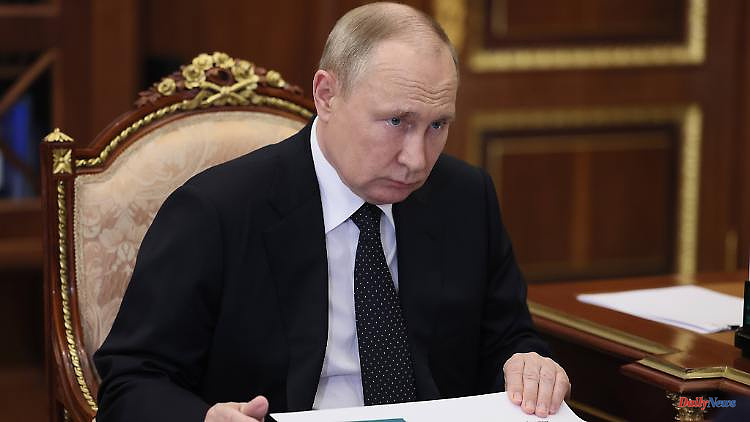The euro is going down again. There is one main reason for this: the Kremlin could turn off the gas in Europe, triggering a recession.
The euro continues to lose value. The common currency falls by 1.2 percent to $ 1.0297 - on the foreign exchange market, a price movement of this magnitude is unusually strong. The euro has thus reached its lowest level since 2002. This year it has fallen by more than 8 percent, in the summer of last year it was still around 1.20 dollars.
The reason for the recent setback: fears are growing on the market that the euro zone will slide into a recession - triggered or exacerbated by an energy crisis triggered by the Kremlin. The state-controlled Gazprom group has already completely cut off gas to Poland, Bulgaria and Finland. In addition, less gas flows through the Nord Stream 1 Baltic Sea pipeline than usual. Russia justifies the throttling with technical problems, which the federal government considers to be an excuse.
Next Monday, Gazprom will completely stop delivery through the Nord Stream pipeline. Because then the annual maintenance work begins. These usually last ten days. But it wouldn't be particularly surprising if Gazprom shut down the pipeline for a longer period of time. That would be a problem for the energy-intensive German industry, for example. It consumes more than a third of the gas in Germany. If the companies run out of gas, there is a risk of a large-scale production standstill.
The fruit of a gas-stop-triggered recession will be reinforced by the interest-rate turnaround initiated by the European Central Bank. In view of the high inflation, the central bank feels compelled to raise interest rates despite the weakening economy. This July she will leave the zero line. A second interest rate step is to follow in September.
Incidentally, inflation is also being reinforced by the Kremlin. Because the war of aggression in Ukraine has caused energy prices to skyrocket, they have become one of the strongest drivers of inflation.
When interest rates rise, loans become expensive, saving becomes more attractive, companies invest less and consumers spend less money. This fights inflation - but at the same time it slows down the economy. Even without a gas crisis, the euro zone could fall into recession simply because of the interest rate hikes. In the first quarter, the eurozone's gross domestic product increased by just 0.6 percent.
Another problem: interest rate increases do not take effect immediately, but with a delay. They could therefore possibly only unfold their full effect when the euro zone is already in recession due to a gas delivery stop by the Kremlin. Given this economic outlook, many analysts believe that the euro will soon reach parity with the dollar. The last time it was this low was more than 20 years ago.












